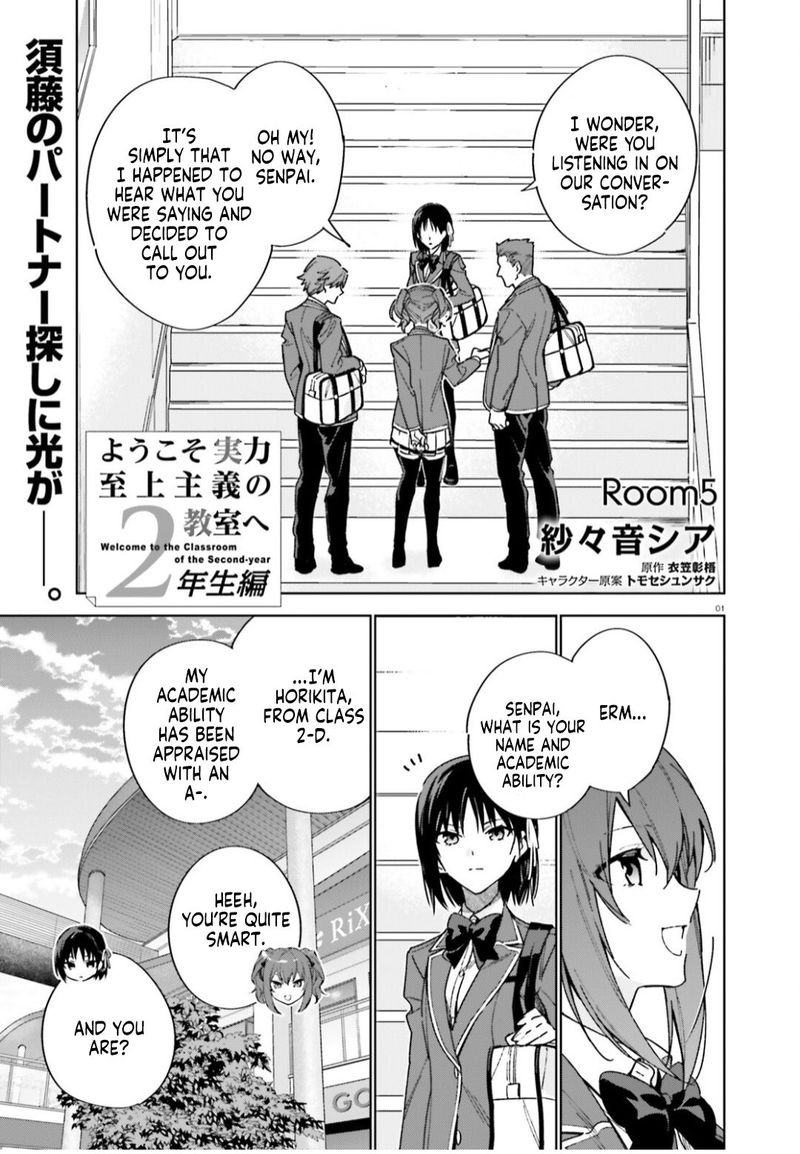
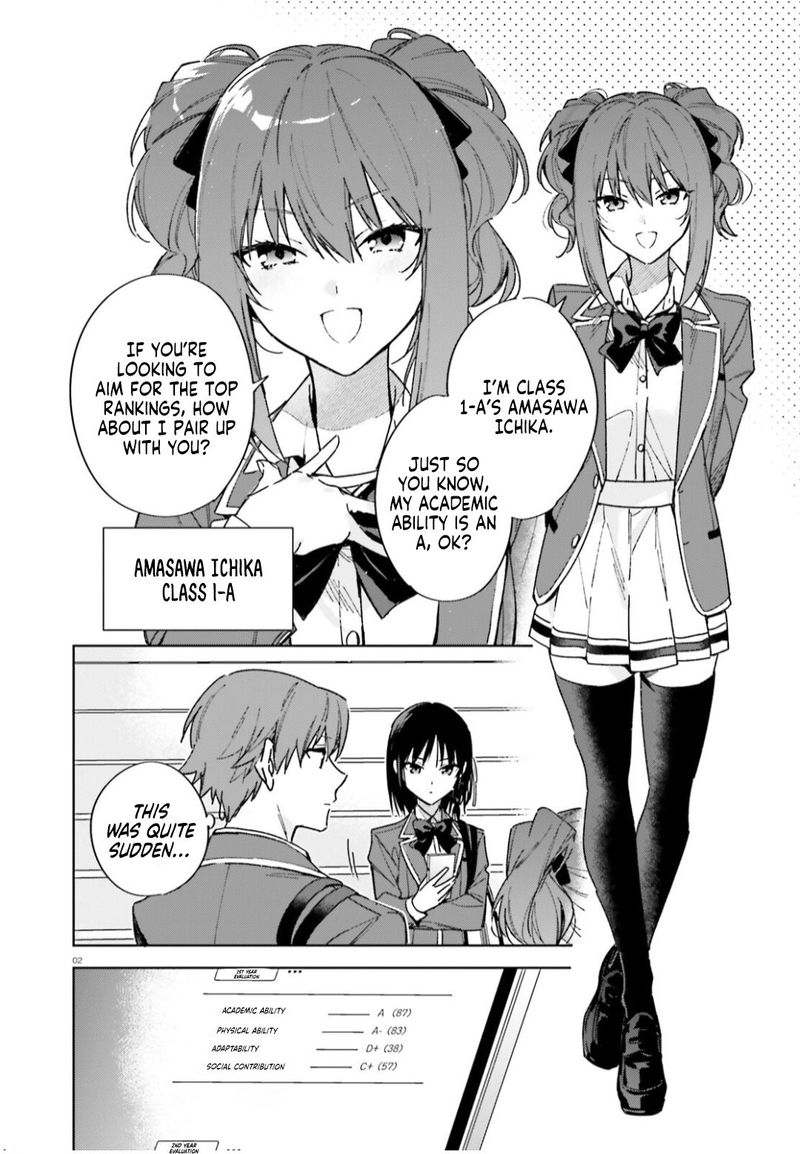
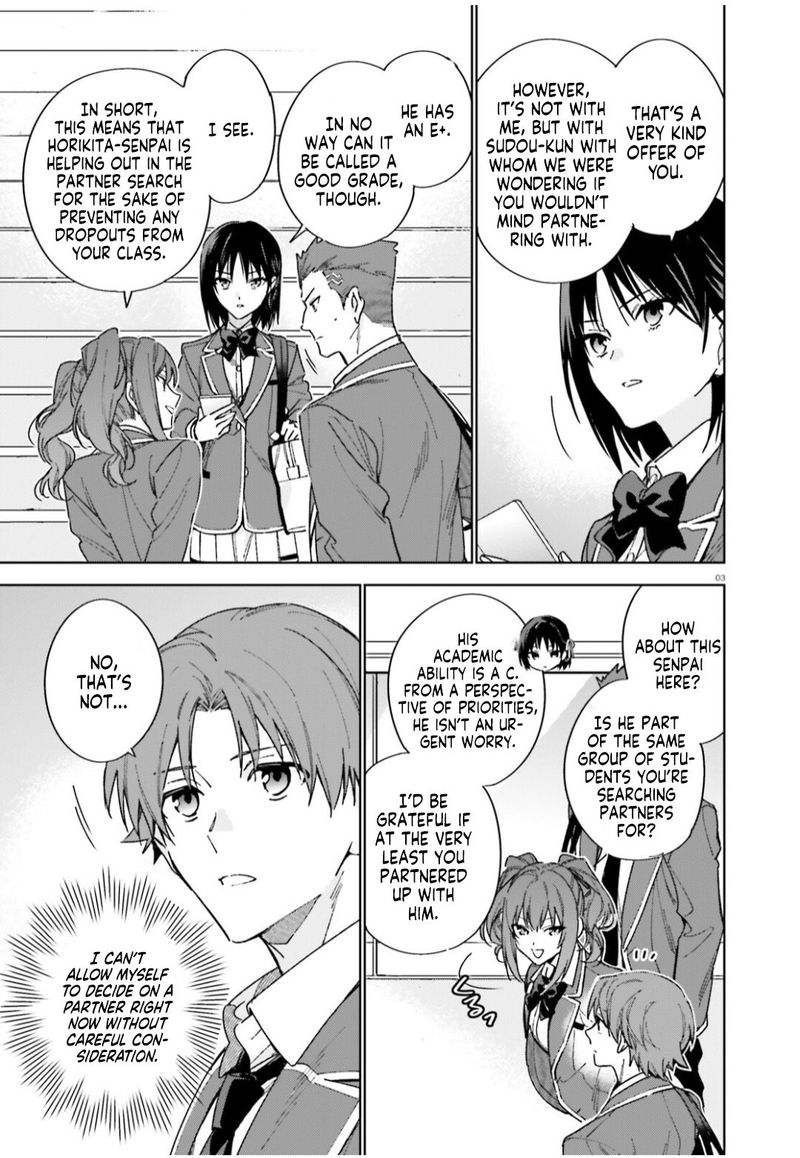
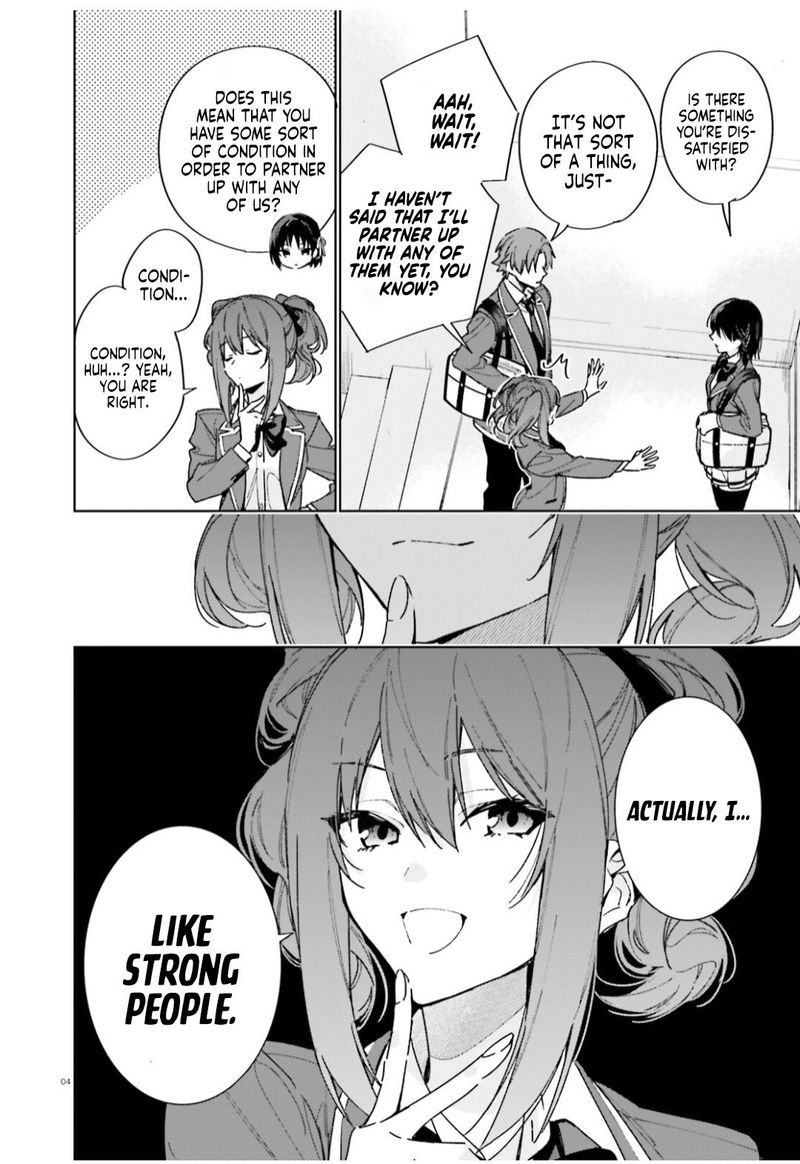
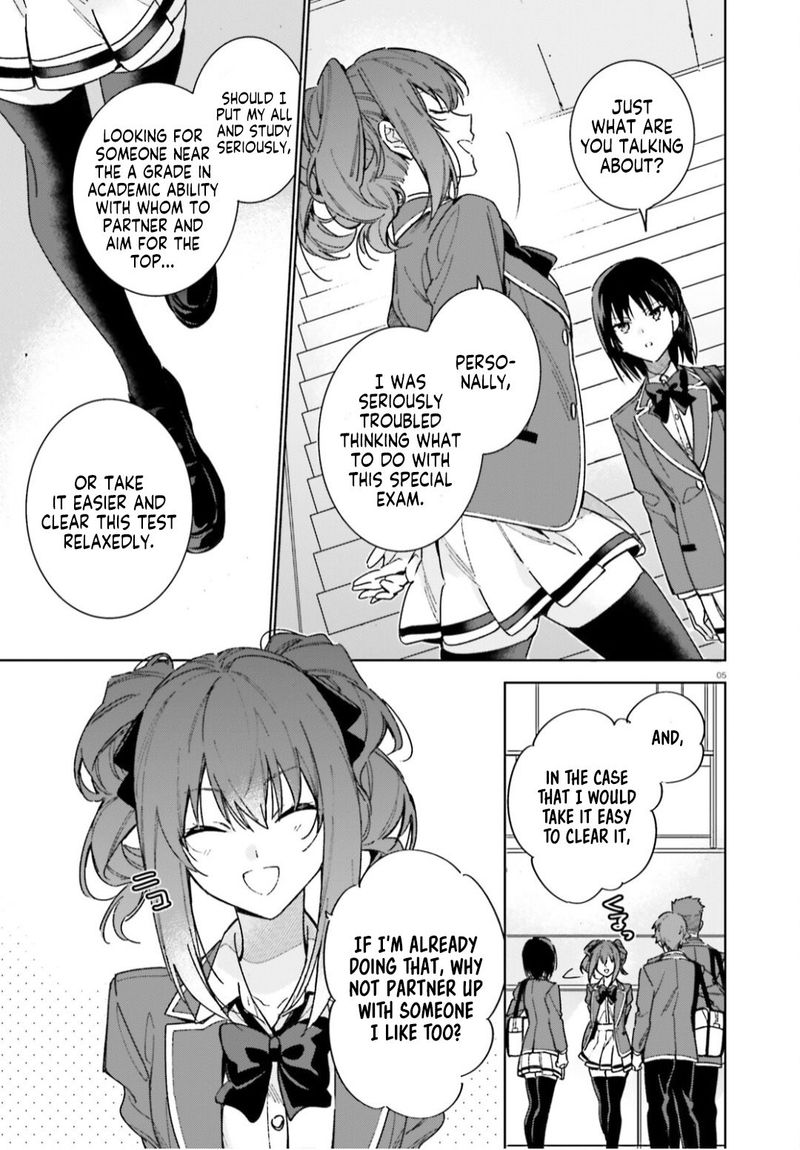
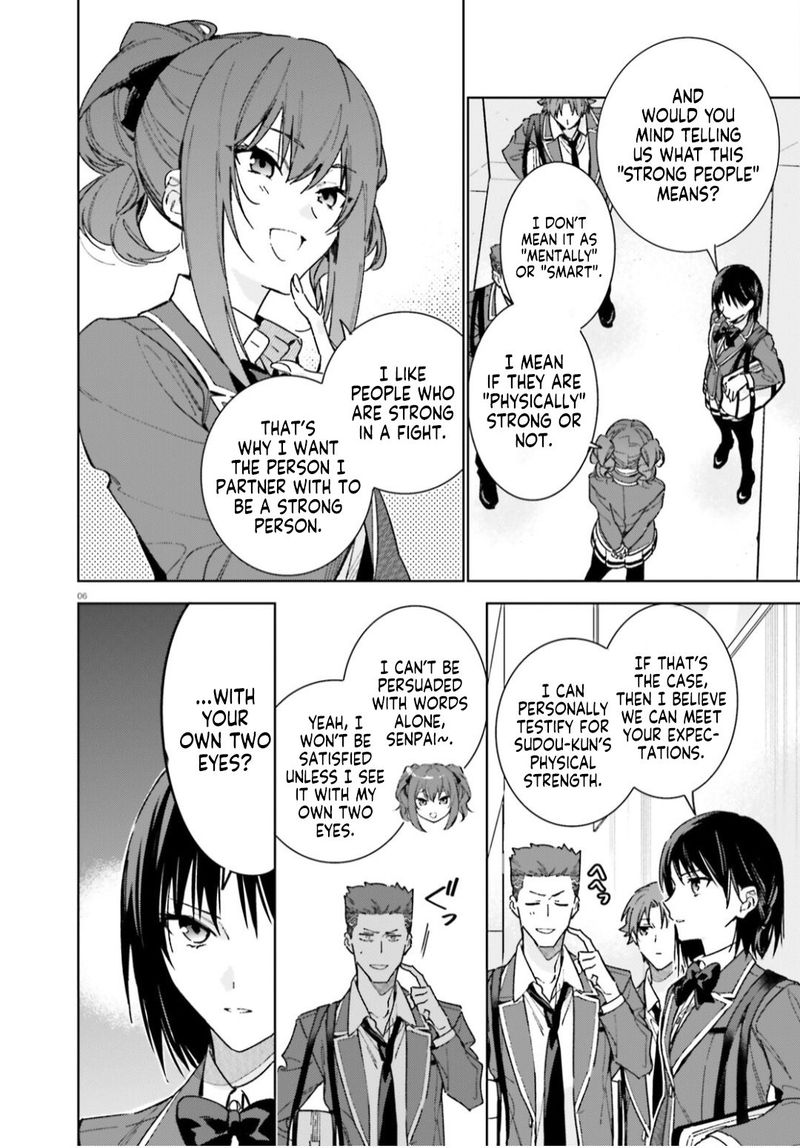
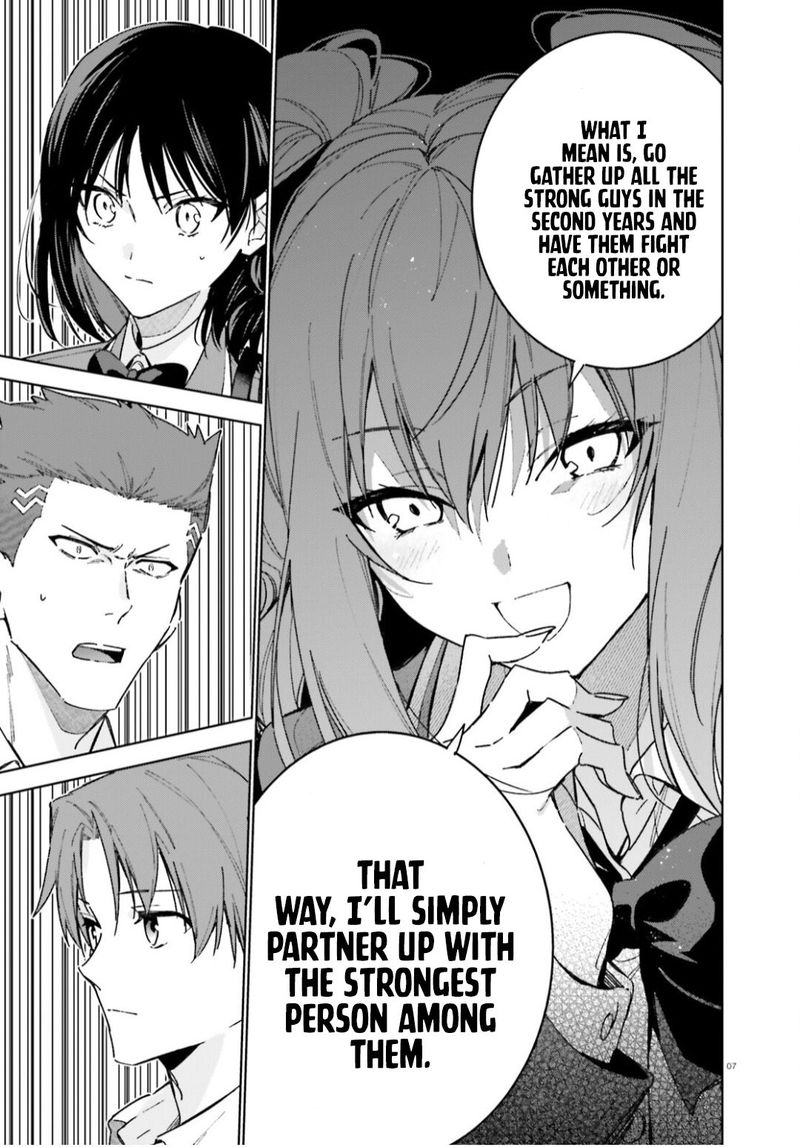
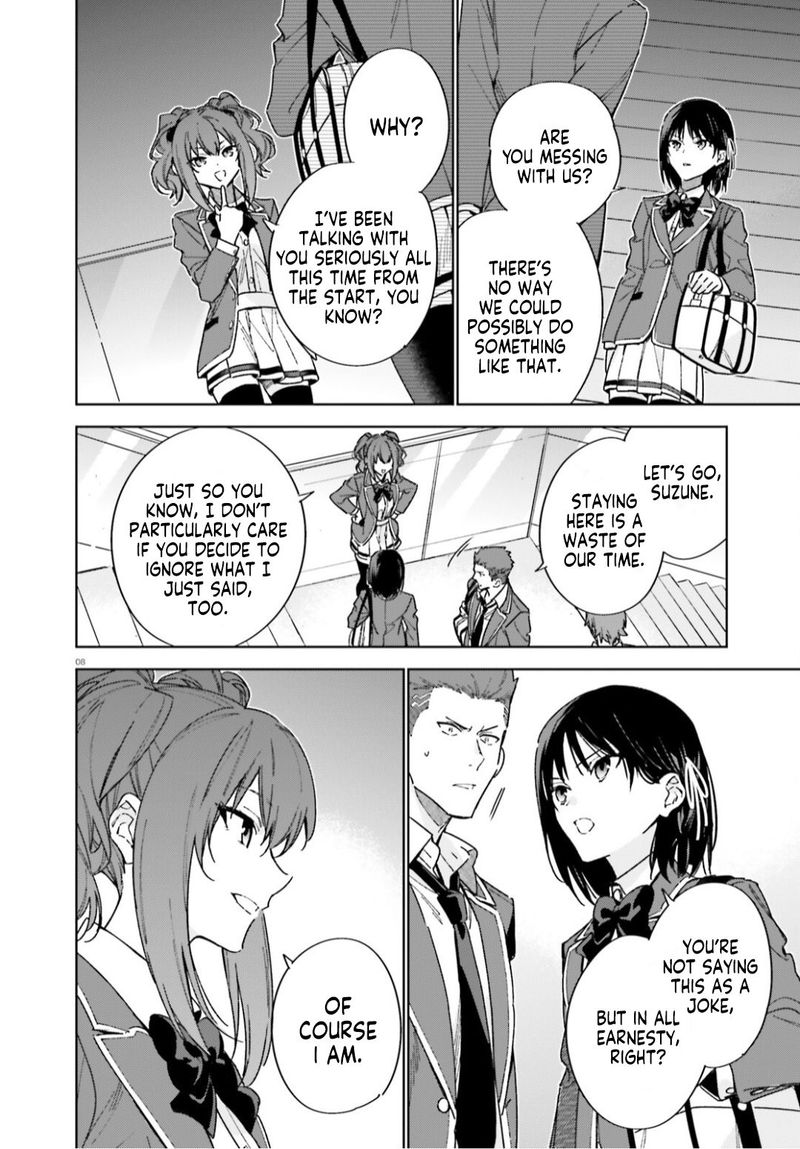
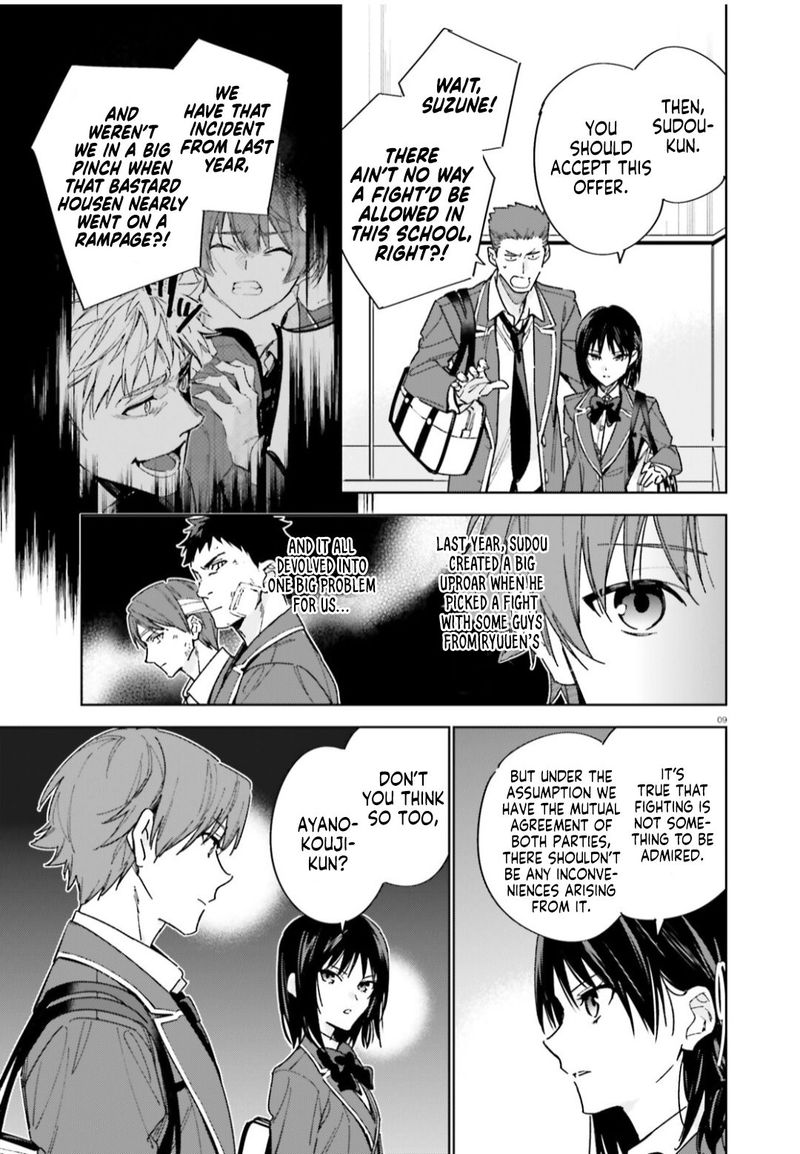
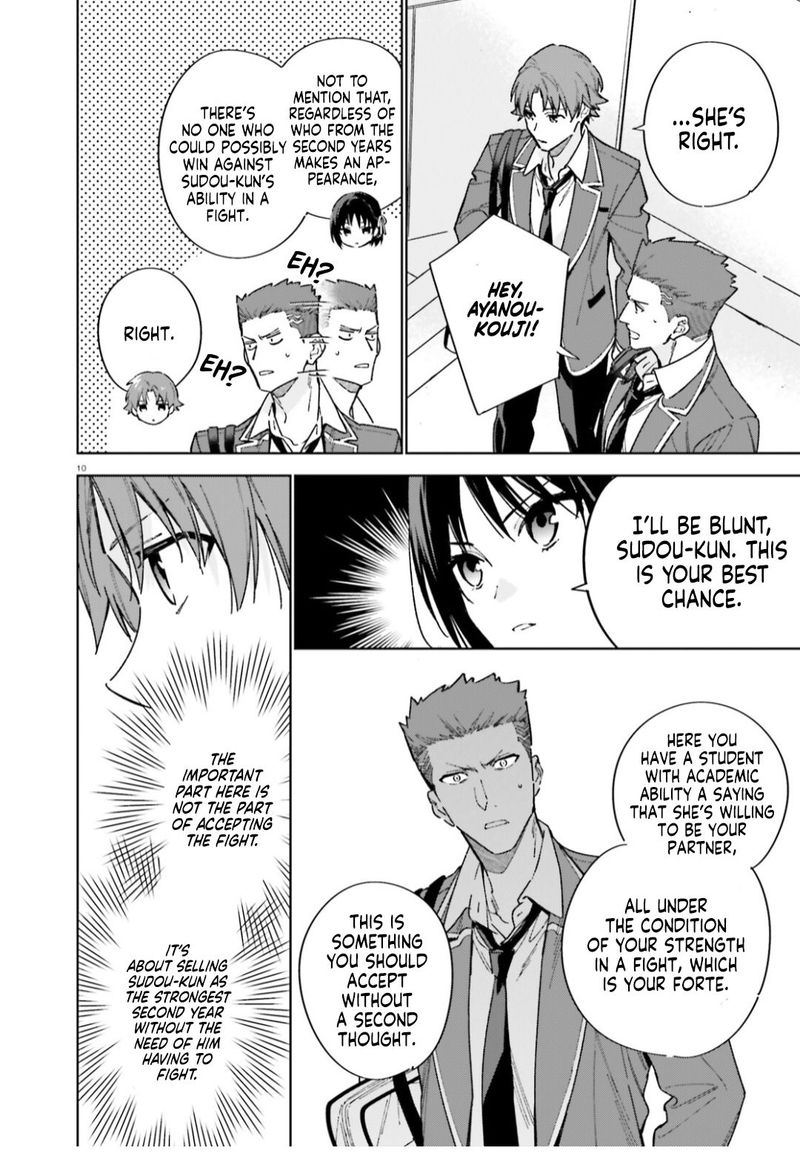
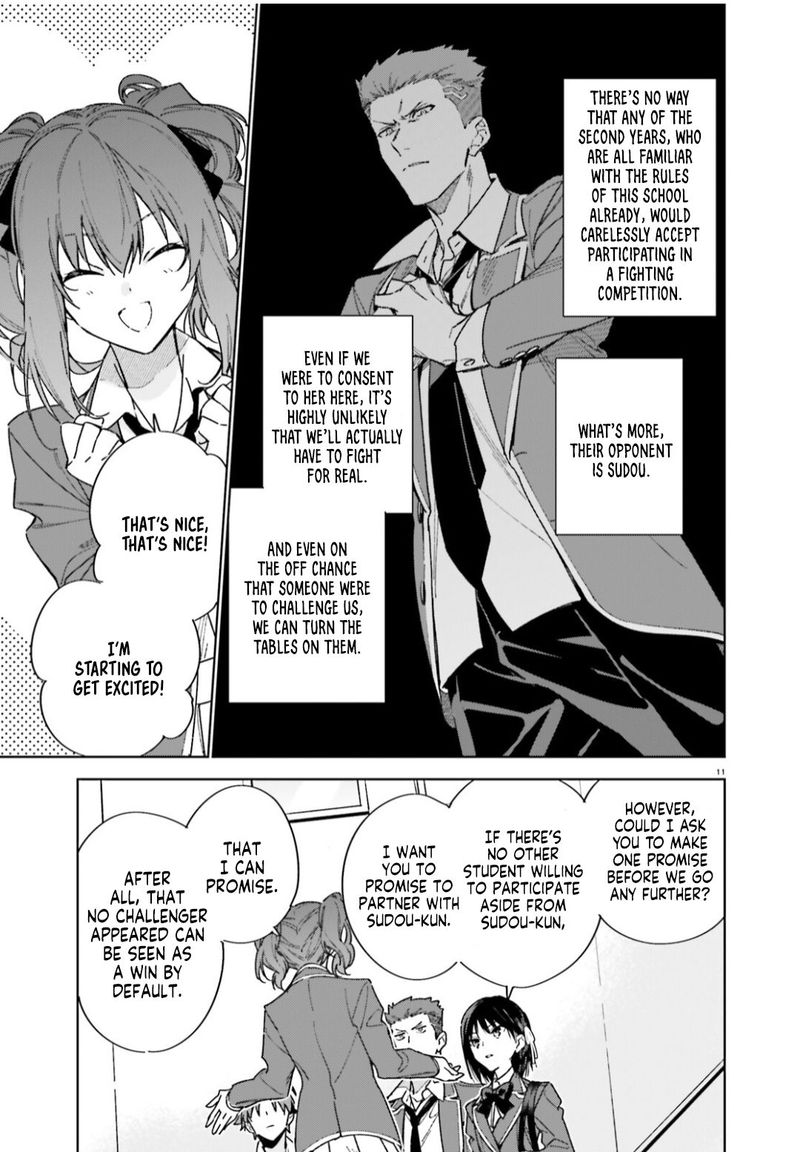
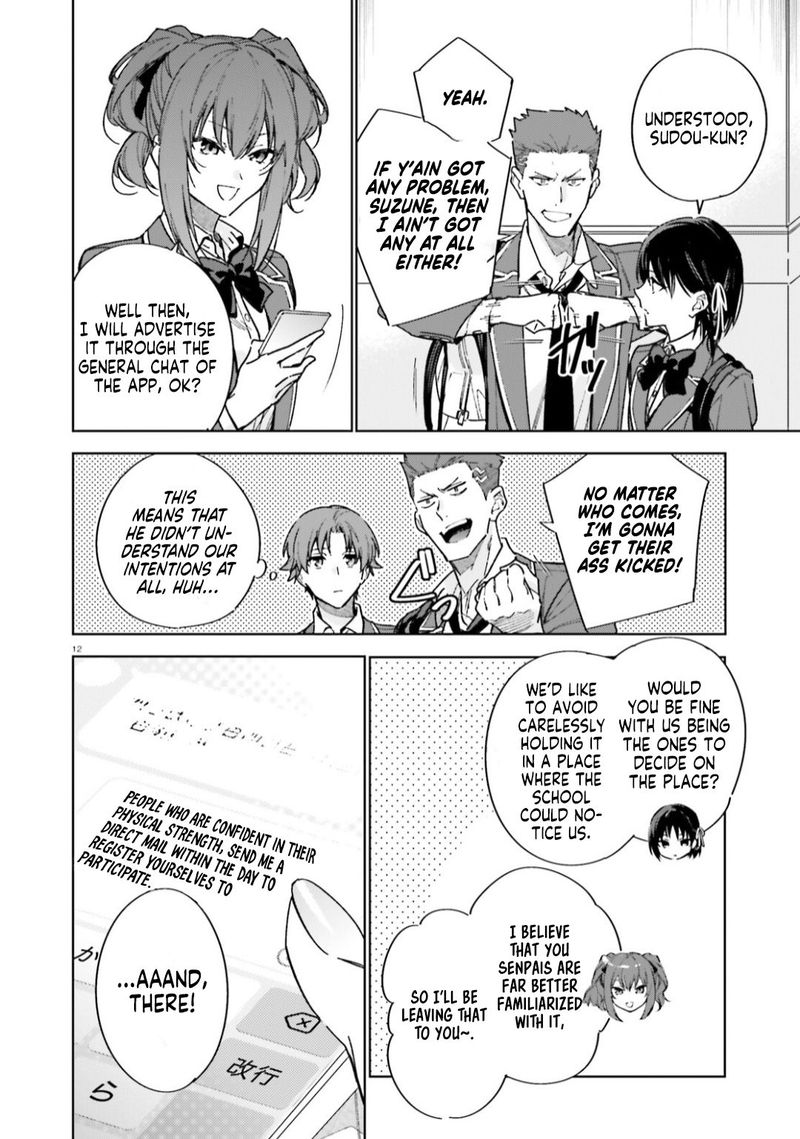
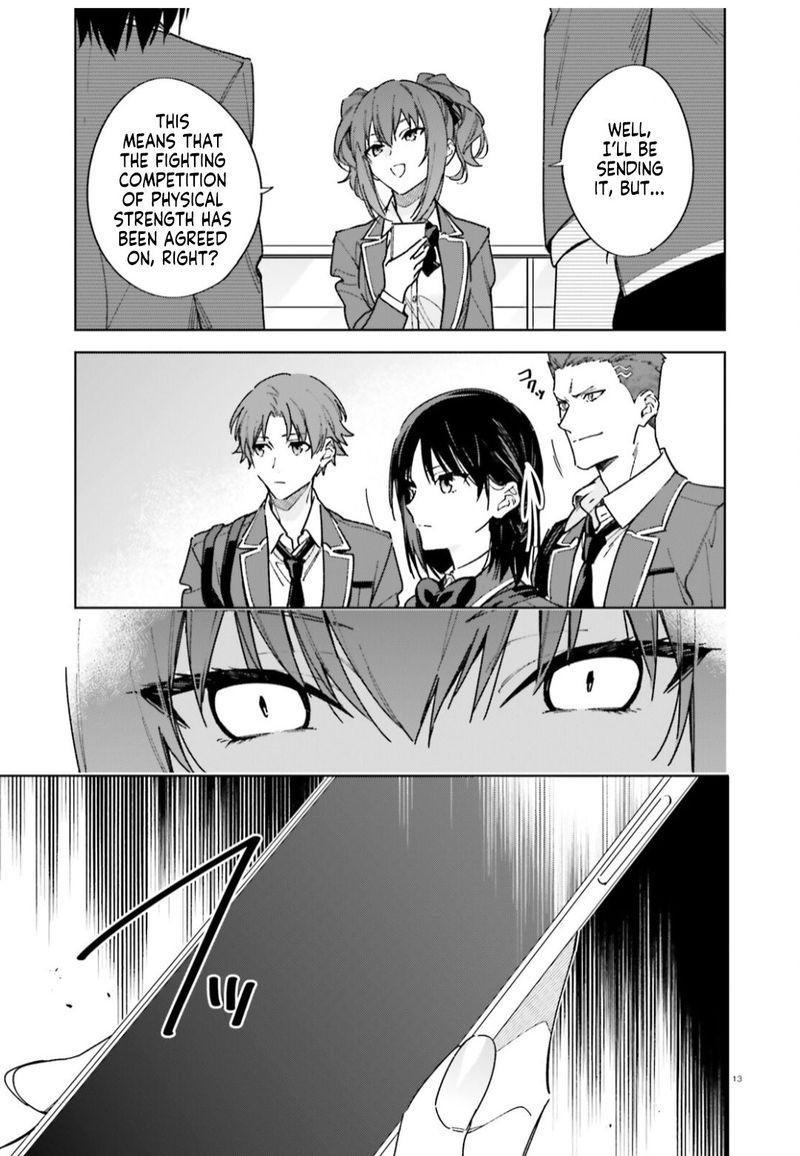
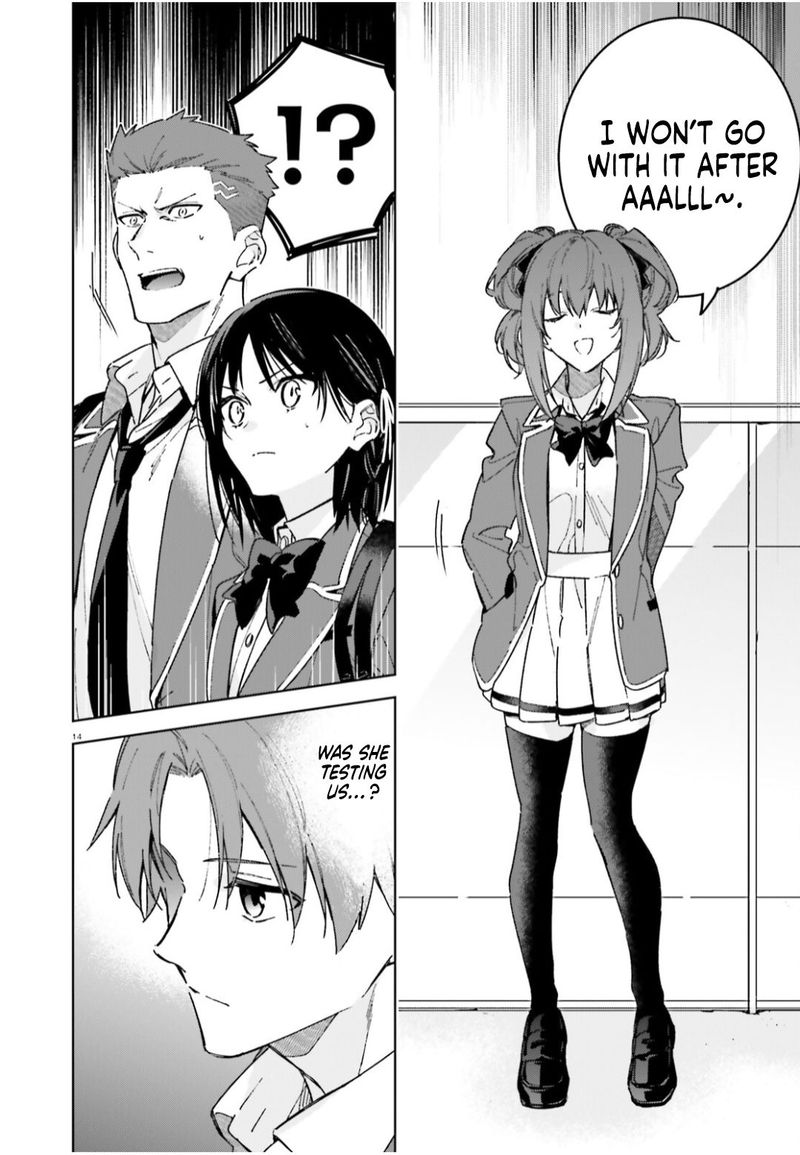
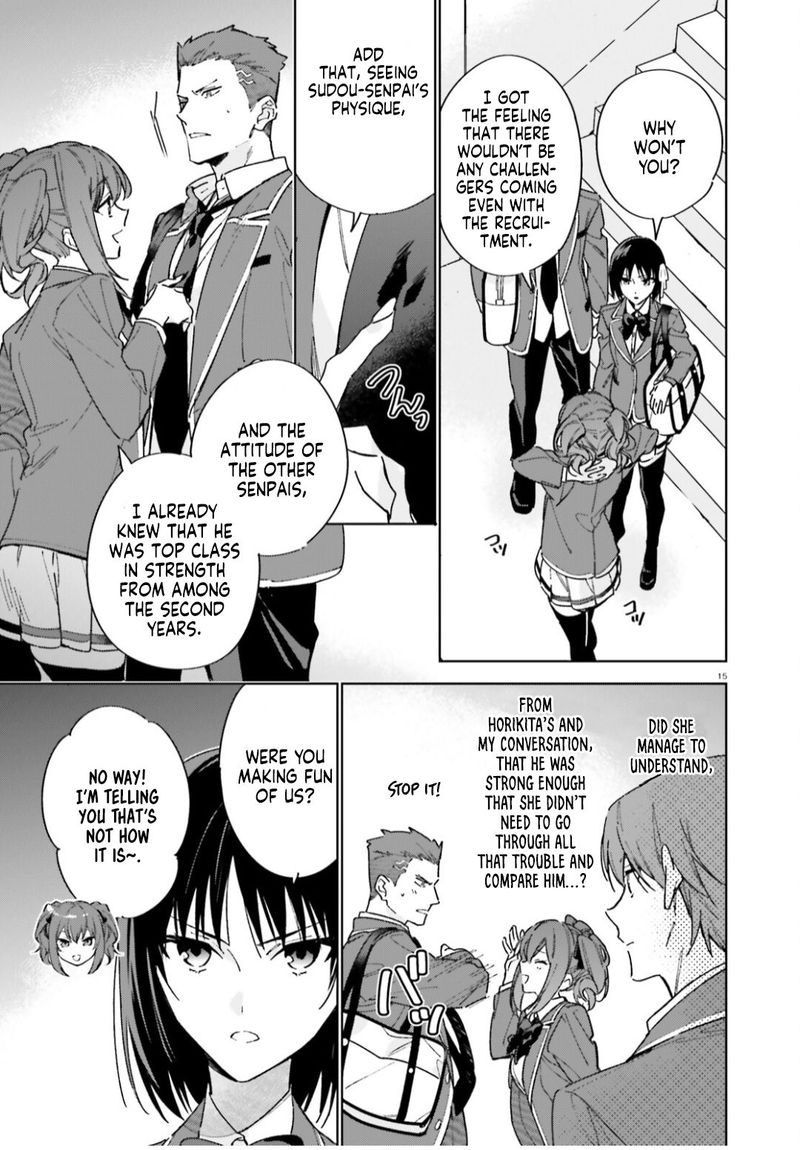
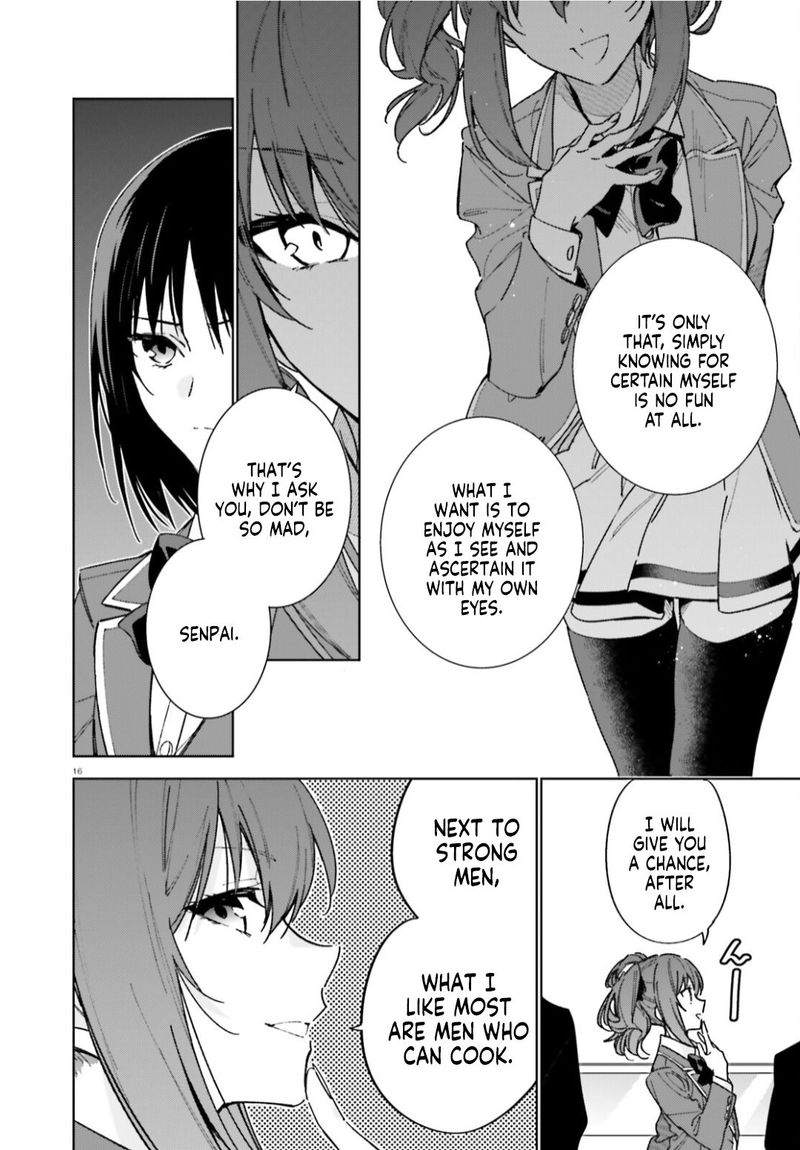
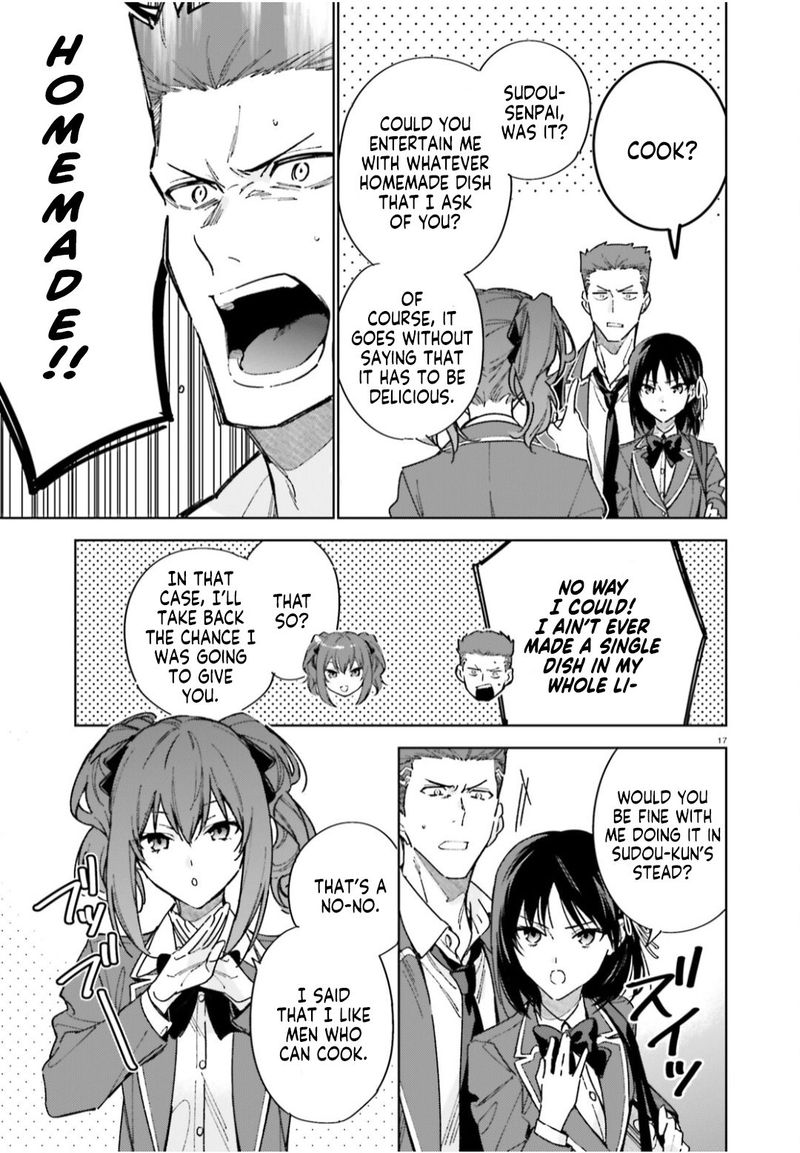
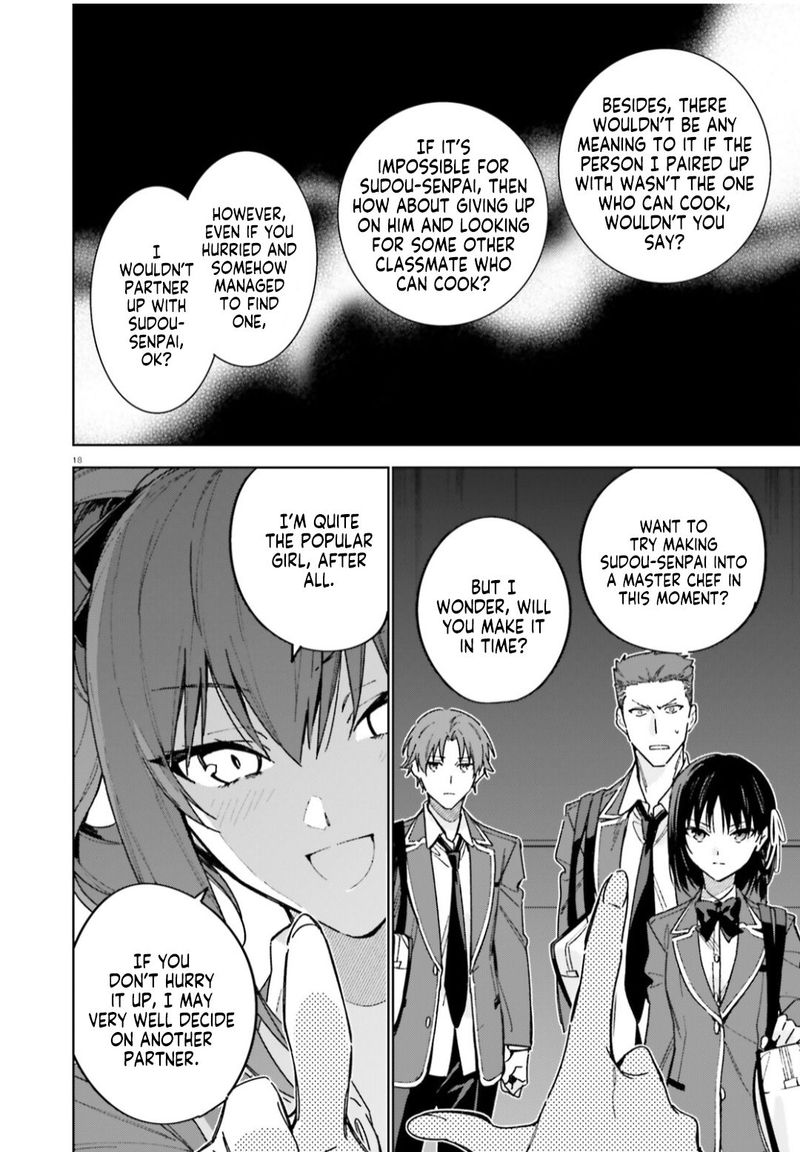
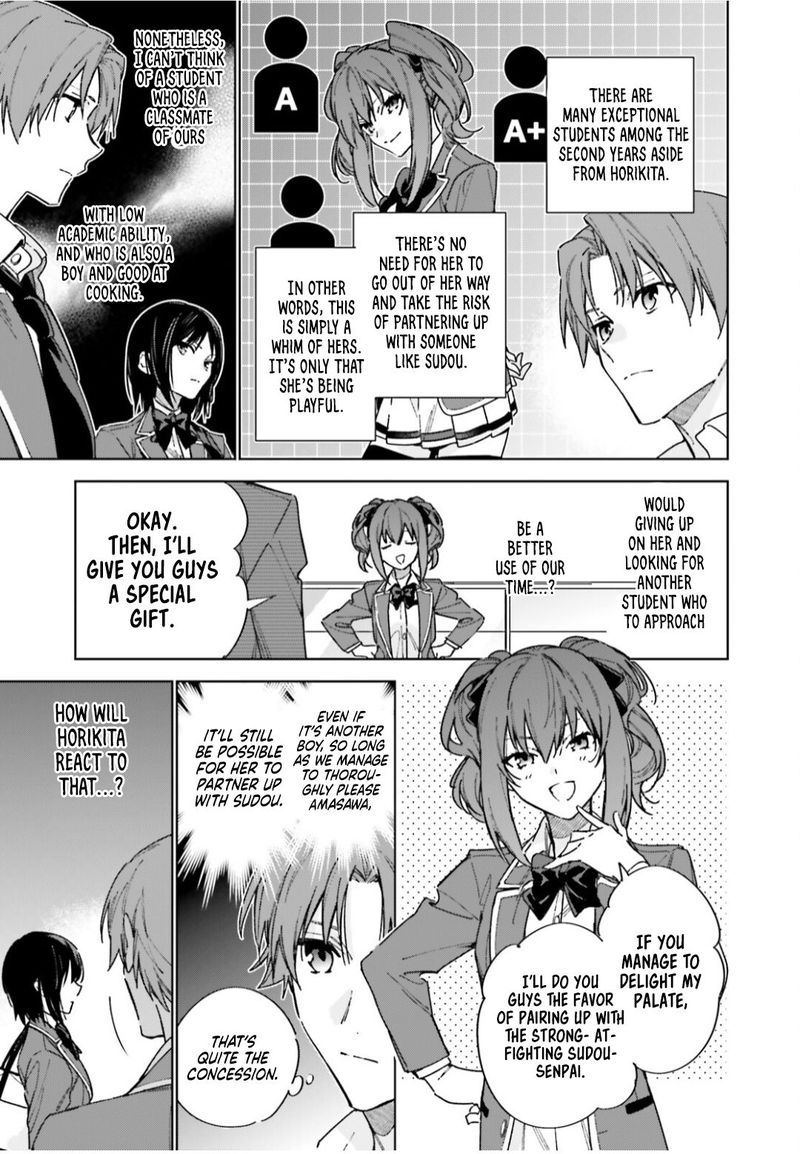
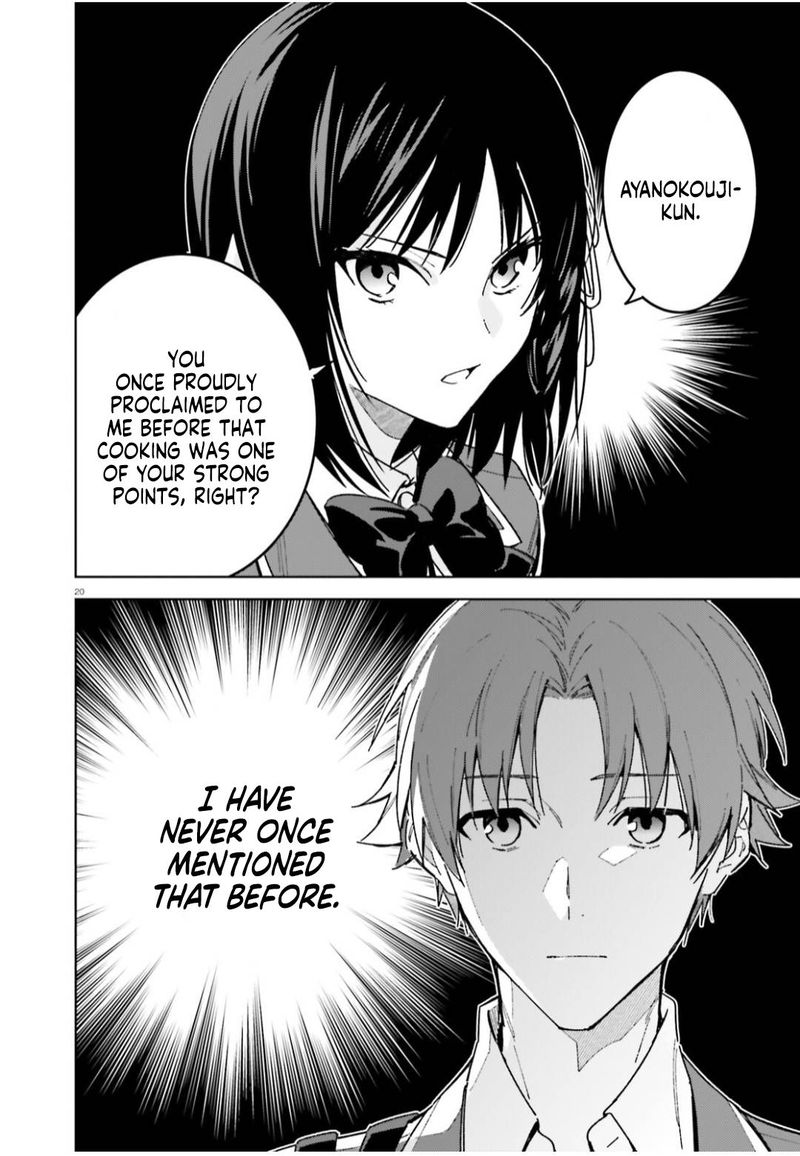
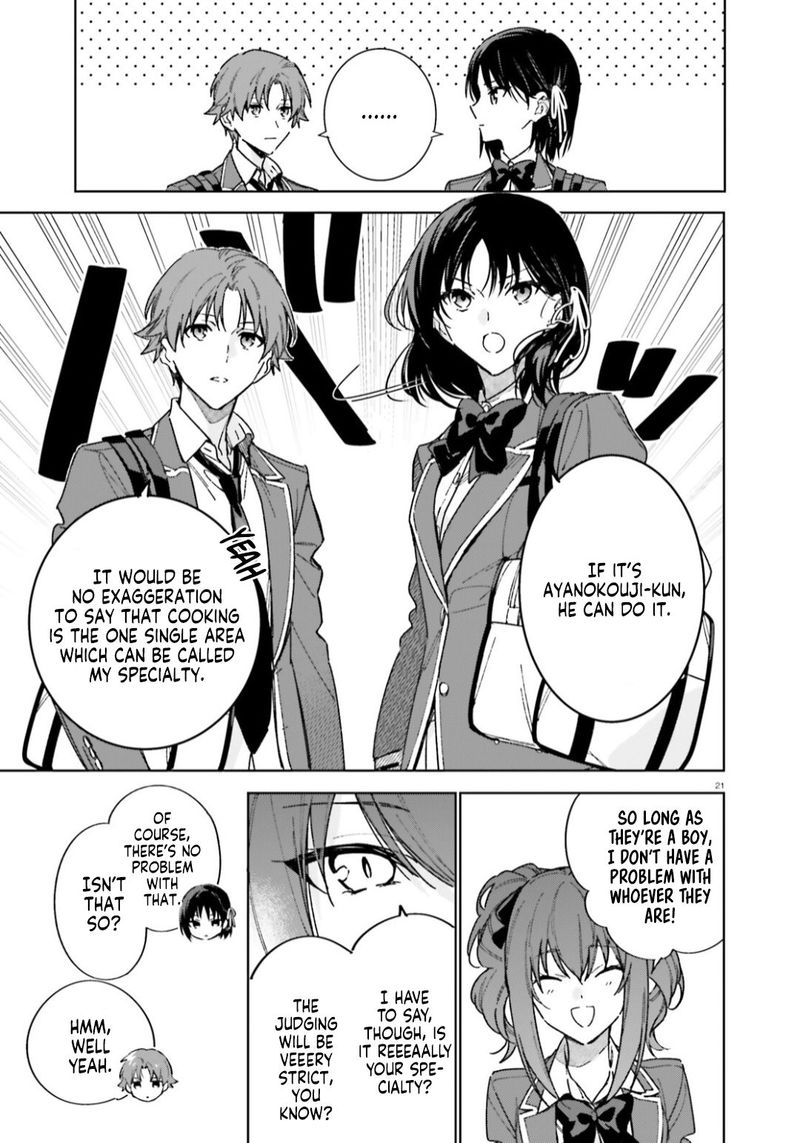
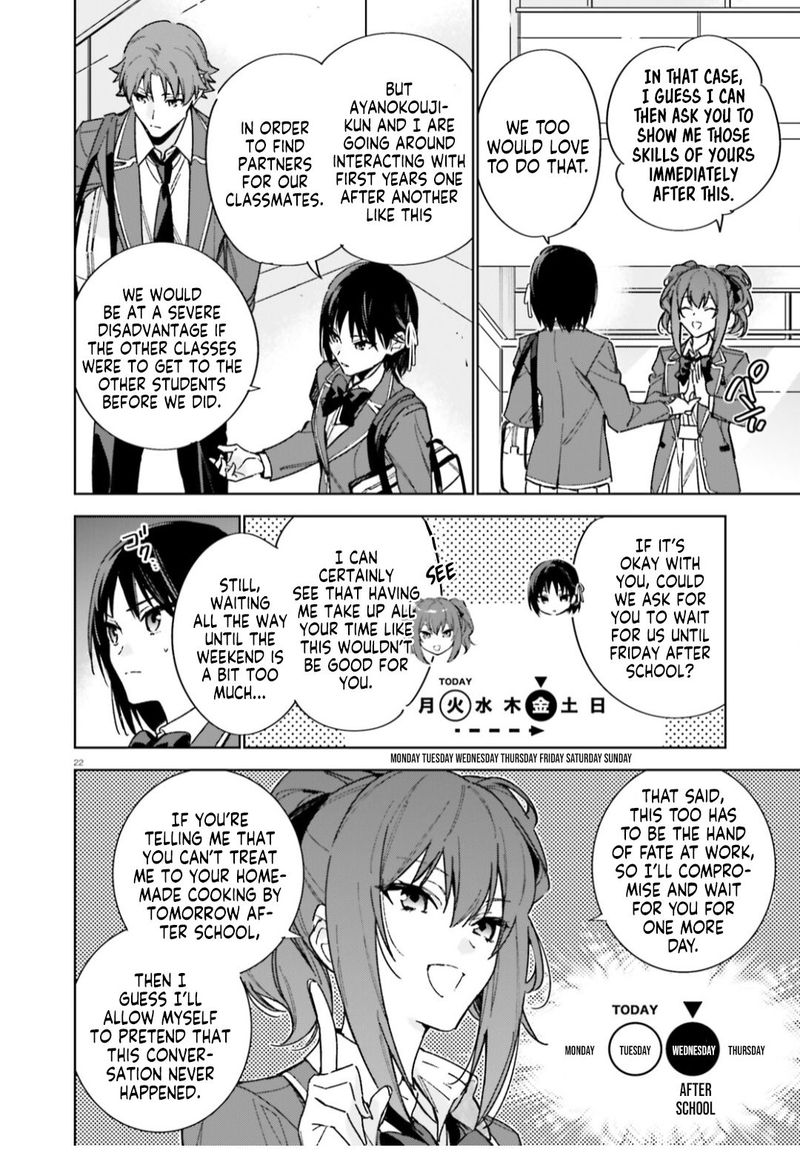
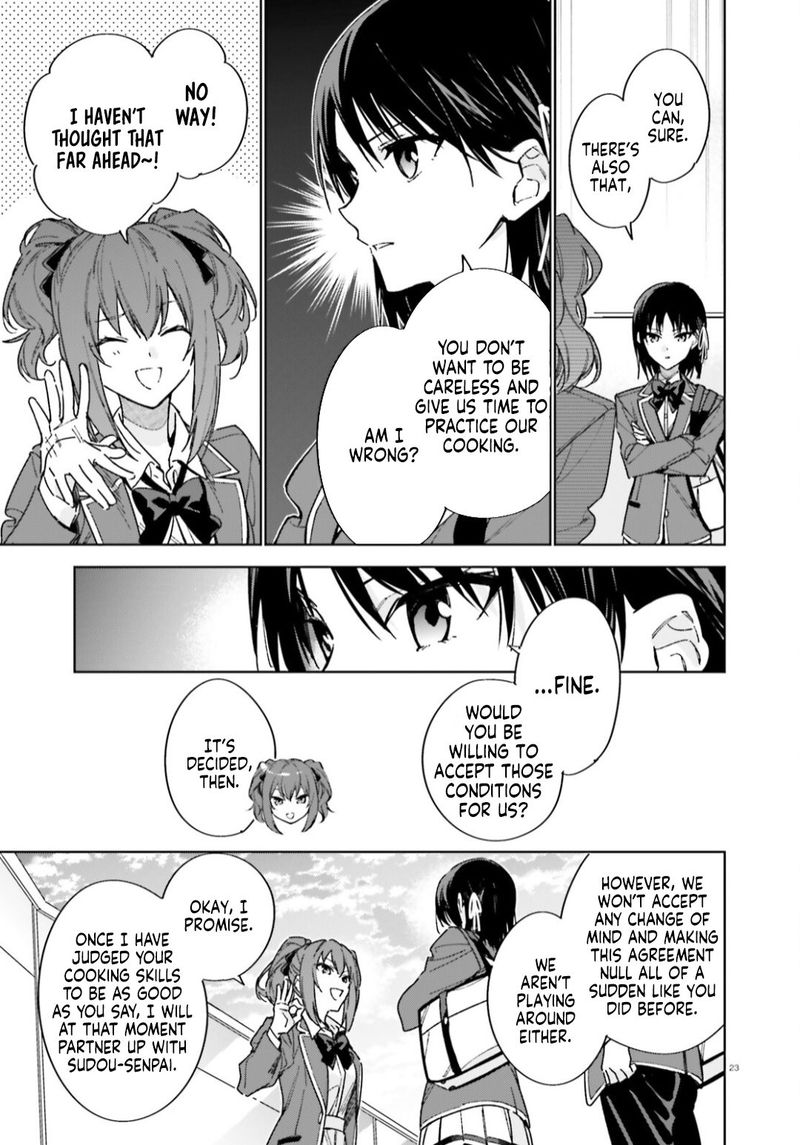
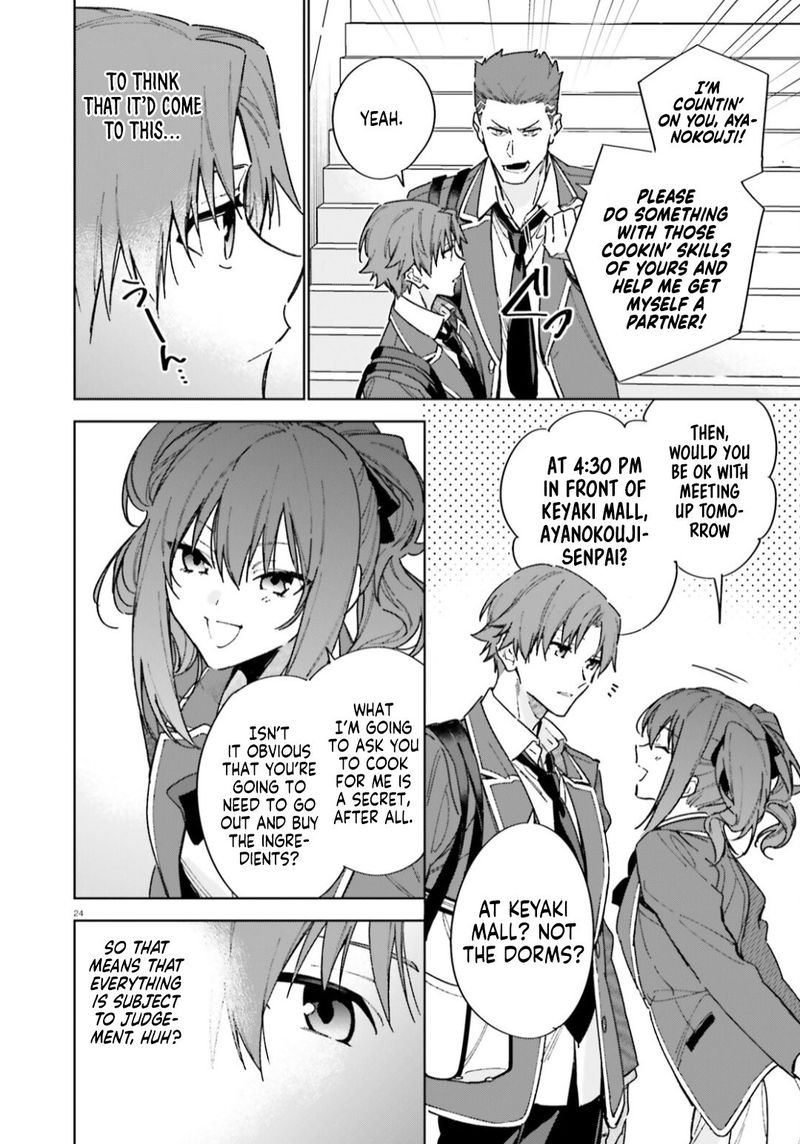
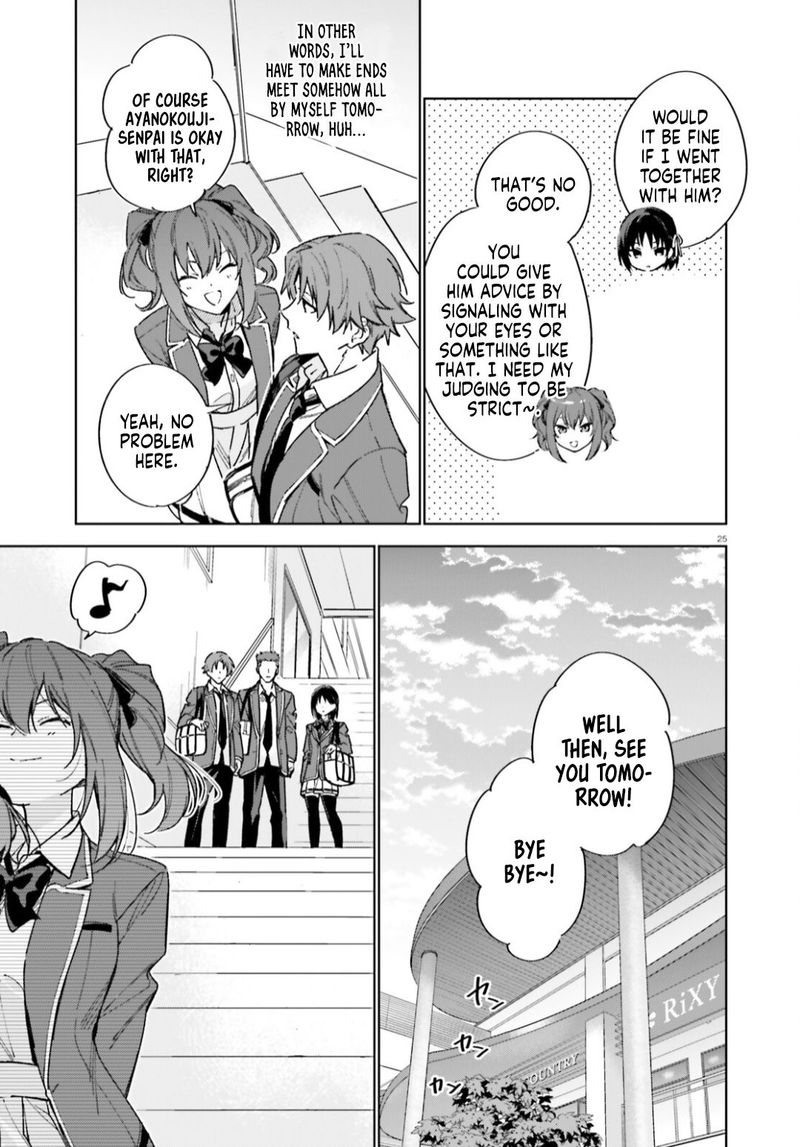
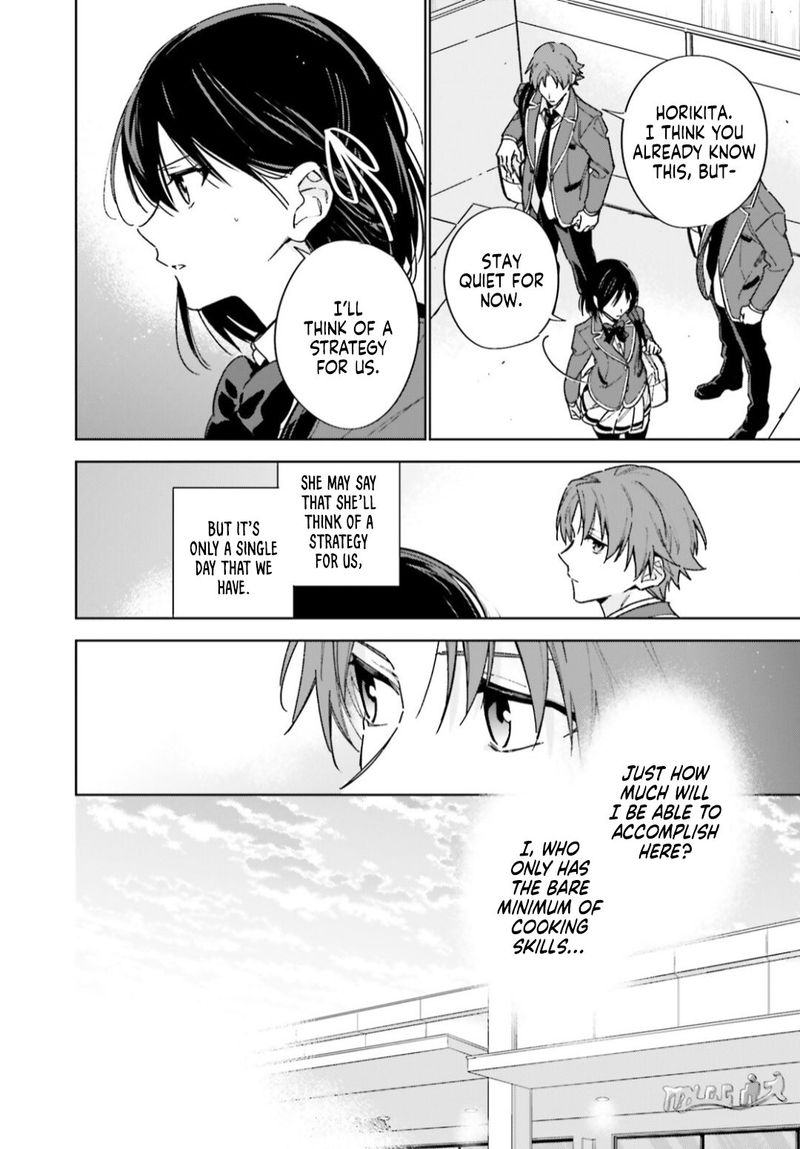
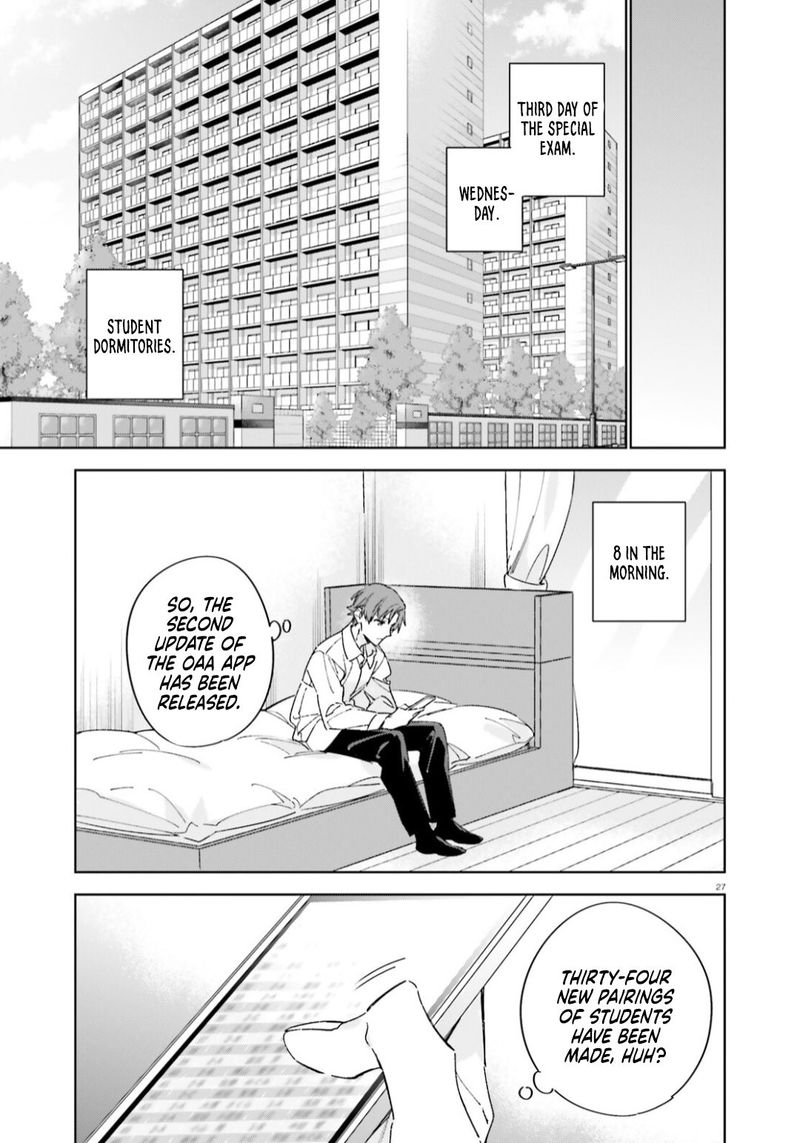
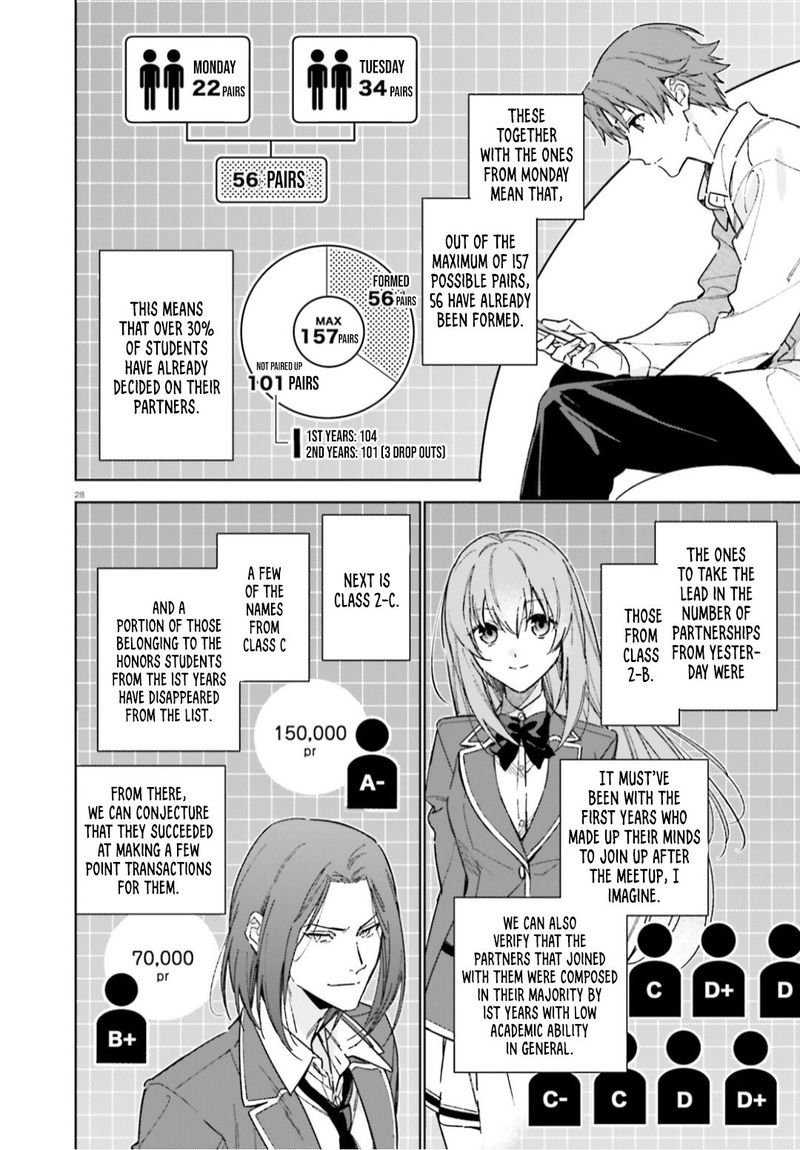
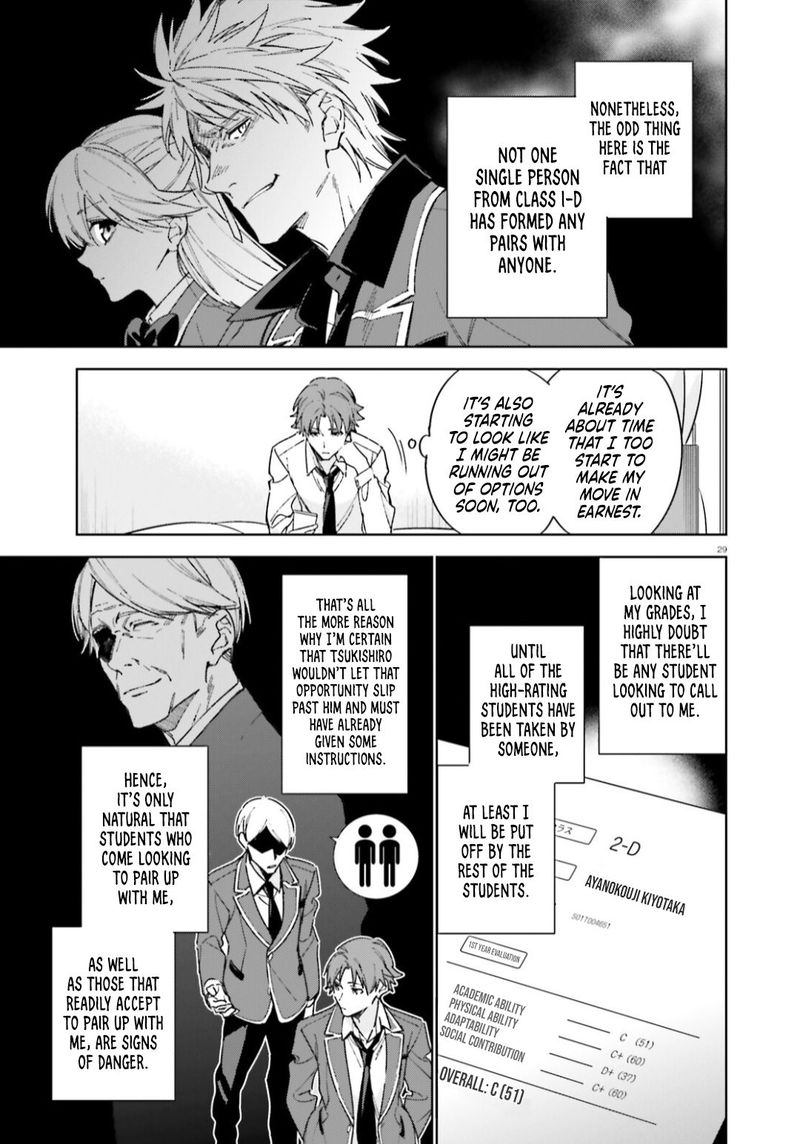
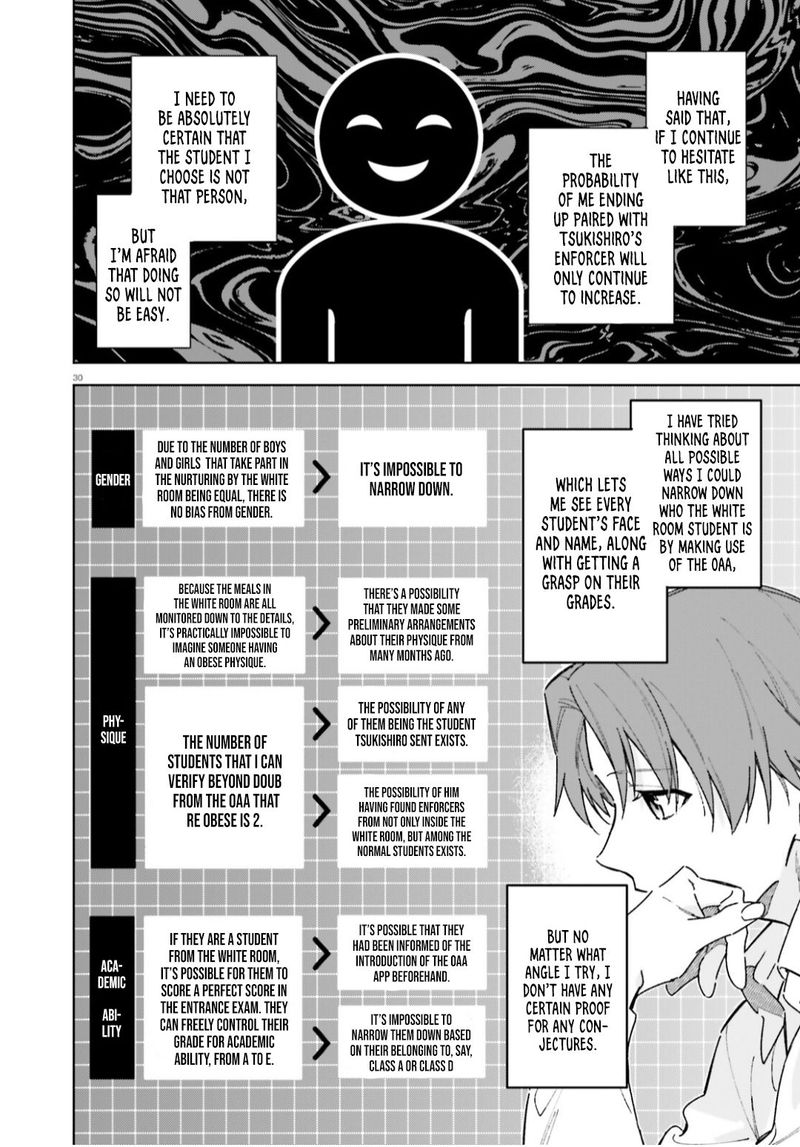
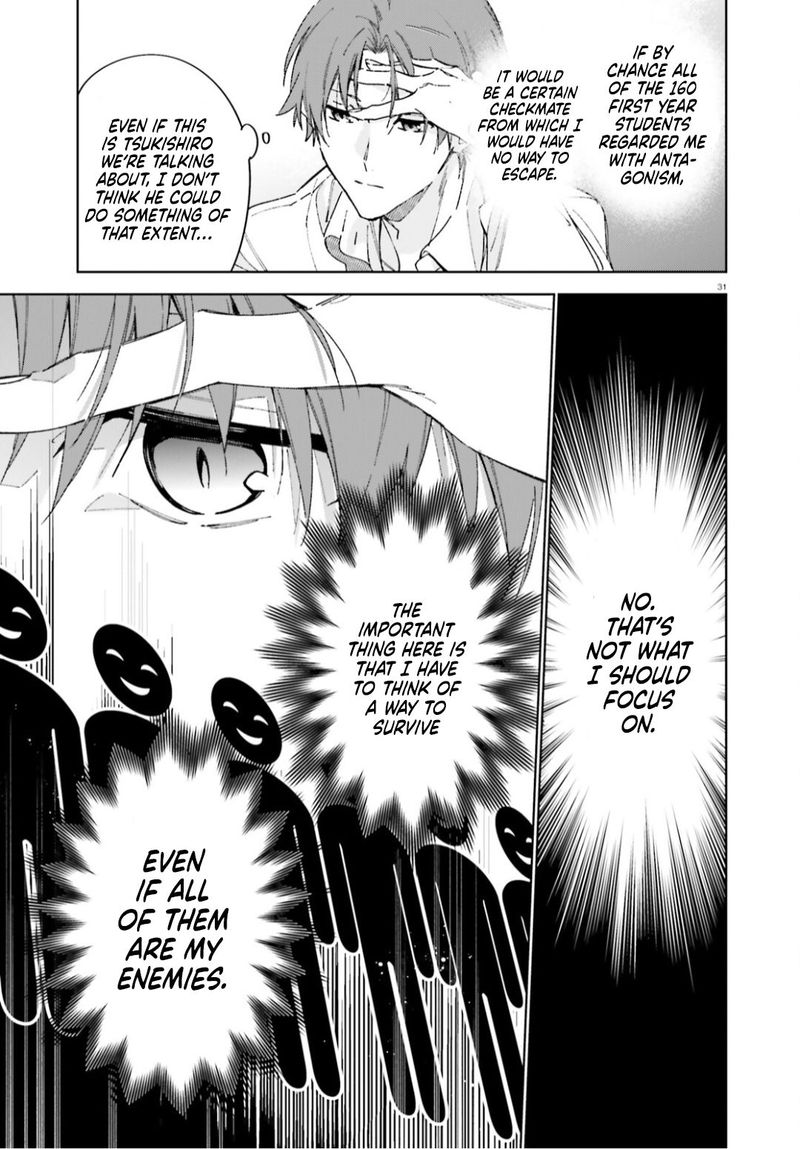
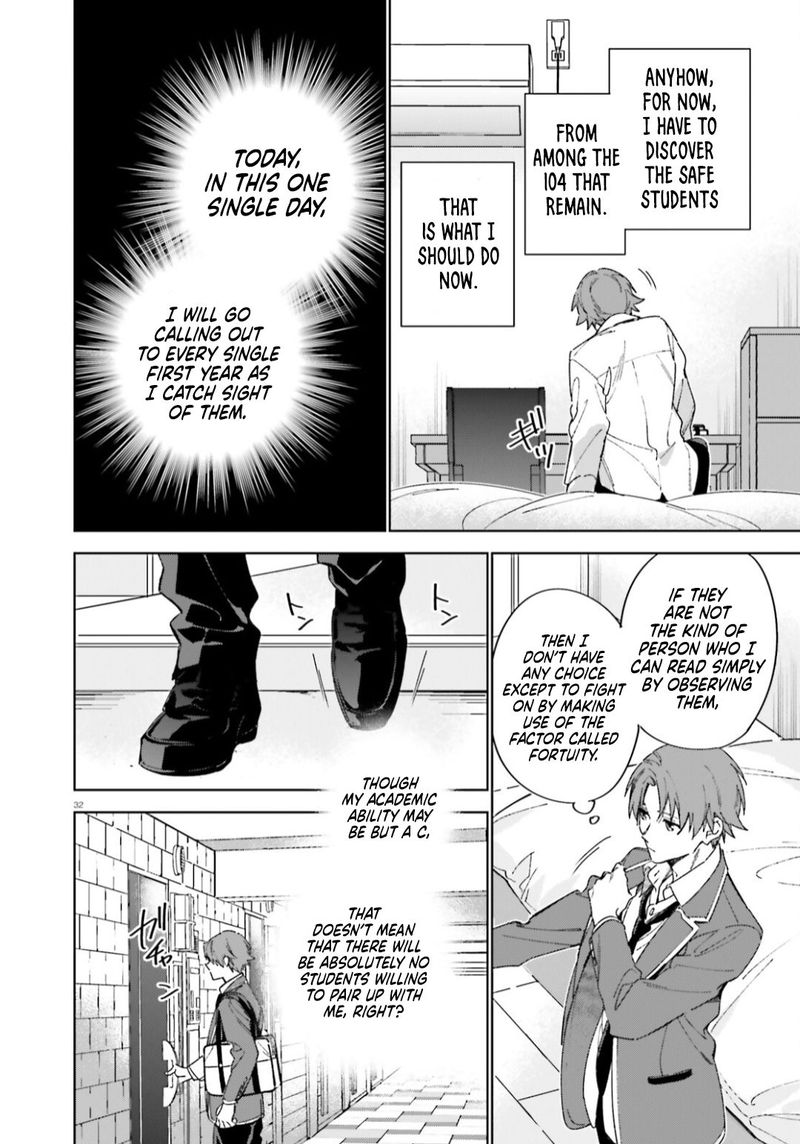
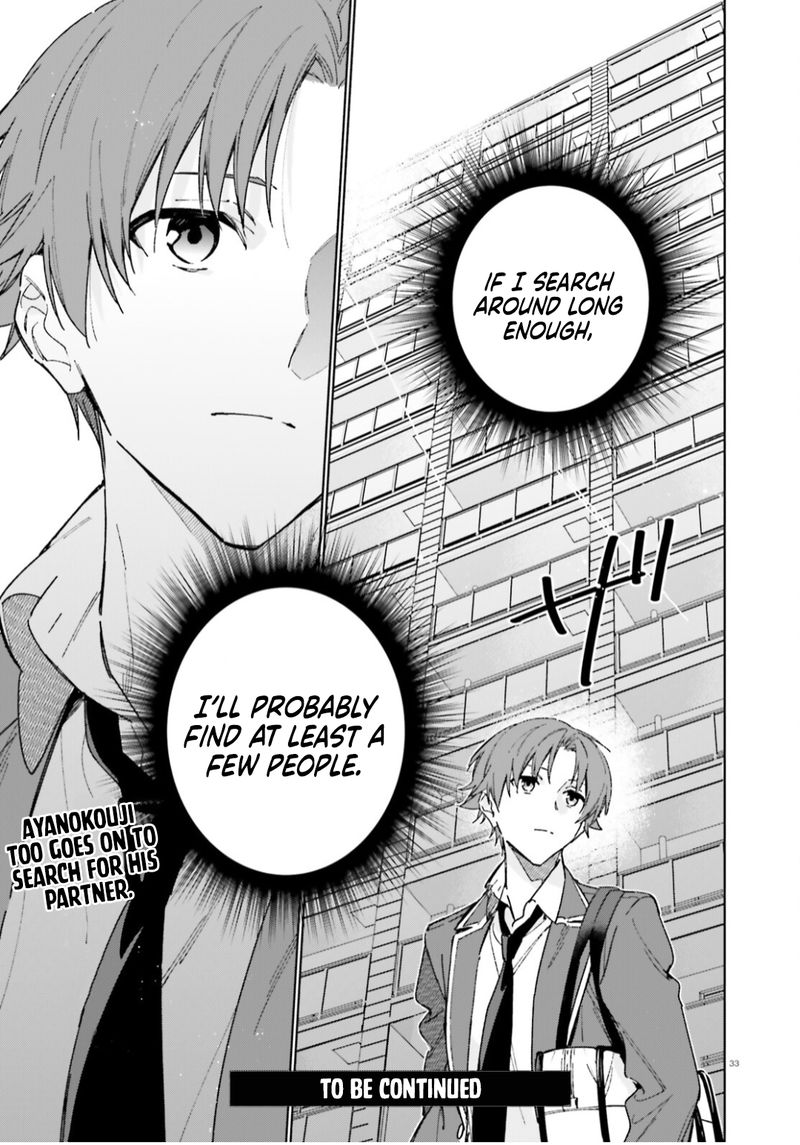
Chapter 5 Summary
The first light of dawn slipped through the narrow slits of the dormitory windows, painting the polished floor of the common room with a thin, amber haze. Kiyotaka Ayanokouji rose from his futon with the same unhurried precision that had become his habit since the beginning of the second year. He stretched his limbs, feeling the faint ache of yesterday’s training still lingering in his shoulders, and then slipped his shoes on without a sound. The hallway was quiet, the only disturbance the soft rustle of paper as a few students shuffled past, clutching their notebooks and textbooks.
Class D was already gathering in the old, slightly cramped classroom that served as their strategic hub. The room smelled faintly of chalk and stale coffee, a reminder of the countless late‑night sessions that had taken place there. Suzune Horikita stood at the front, her posture immaculate, eyes narrowed as she surveyed the faces of her classmates. She had a reputation for being the cold, calculating mind behind the group’s most daring plans, and today was no different. The tension in the air was palpable, a mixture of anticipation and the lingering unease that followed every student council conflict.
“Everyone, take your seats,” Horikita said, her voice cutting through the murmurs like a blade. “We have a lot to cover before the upcoming exam preparation period. The student council has announced a surprise assessment, and we need to be ready.”
A murmur rippled through the room. The surprise assessment was a rumor that had been circulating for weeks, but the official confirmation had only just arrived. It was a test that would evaluate not only academic knowledge but also the ability to work under pressure, a perfect arena for the hidden abilities that many in Class D preferred to keep under wraps.
Kei Karuizawa, perched on the edge of her seat, glanced up from her notebook. Her eyes, usually bright with a carefree spark, were now narrowed in concentration. “Do we know what kind of questions they’ll ask?” she asked, her voice tinged with curiosity.
Horikita tapped a finger against the blackboard, where a hastily drawn diagram of the school’s layout now stood. “The assessment will be divided into three parts: a written exam, a physical challenge, and a strategic simulation. The written portion will cover the core curriculum, but the physical challenge will test our endurance and teamwork. The simulation will be a live scenario where we must solve a crisis within the school’s infrastructure.”
Ryuuji Kanzaki, who had been leaning against the wall with his arms crossed, let out a low chuckle. “Sounds like they’re trying to see if we can actually function as a unit. Good luck with that, Horikita.”
Horikita’s eyes flashed. “Don’t be so quick to dismiss this, Kanzaki. The student council believes that by forcing us into a high‑stakes environment, they can expose the weaknesses in Class D’s coordination. They want to see if we can maintain our ranking.”
Kanzaki’s grin faded, replaced by a more serious expression. “Then we’ll have to show them that we’re more than just a collection of individuals. We’re a team.”
Ayanokouji’s gaze drifted to the corner of the room where a small, battered locker stood. Inside, a set of old training equipment lay forgotten: a rope, a set of weights, a pair of gloves. He had been using those items in secret, honing his physical abilities while the rest of the class focused on their academic pursuits. The hidden abilities reveal that would later become a pivotal point in the chapter was still a secret, known only to him.
“Let’s start with the written portion,” Horikita announced, pulling a stack of papers from her bag. “We’ll divide the topics among ourselves. Ayanokouji, you’ll handle the mathematics and physics. Karuizawa, you take literature and philosophy. Kanzaki, you’re on biology and chemistry. I’ll cover history and economics. We’ll meet again in two hours to review each other’s work.”
The plan was simple, but the execution would require precision. As the students dispersed to their respective corners, the room filled with the soft rustle of pages turning, pencils scratching, and occasional sighs of frustration. Ayanokouji settled at his desk, pulling out a notebook that bore only a few faint lines of equations. He stared at the first problem—a complex calculus question involving differential equations—and felt a familiar calm settle over him. The numbers and symbols were like a language he could speak fluently, a skill he had cultivated in the shadows of his past.
Hours passed in a blur of concentration. The written exam portion was completed with a near‑perfect score, thanks in large part to Ayanokouji’s quiet efficiency. Karuizawa, despite her usual carefree demeanor, surprised everyone with a deep analysis of existential themes in classic literature, her notes filled with insightful commentary that hinted at a sharp mind hidden beneath her bubbly exterior. Kanzaki, who had always been more interested in the social hierarchy than the sciences, delivered a thorough breakdown of genetic mutations and their implications for the school’s health program, his usual sarcasm replaced by a rare seriousness.
When the group reconvened, the atmosphere was charged with a mixture of relief and anticipation. Horikita spread the papers across the table, her eyes scanning each one with a critical gaze. “Excellent work,” she said, her voice softer than before. “Now we move on to the physical challenge.”
The physical challenge was set in the school’s sprawling gymnasium, a cavernous space filled with rows of bleachers, a basketball court, and a series of obstacle courses that had been repurposed for the assessment. The students were instructed to form pairs and navigate a series of tasks that required both strength and coordination. The first task was a rope climb that led to a platform high above the floor. The second was a series of weighted carries across a narrow beam. The final task involved solving a puzzle while suspended on a harness, testing both mental acuity and physical endurance.
Ayanokouji paired with Horikita, a pairing that surprised many. Their dynamic was one of silent understanding; Horikita’s strategic mind complemented Ayanokouji’s physical prowess, which few had ever witnessed. As they approached the rope, Ayanokouji’s hand slipped onto the coarse fibers, his muscles tensing as he pulled himself upward with a fluid motion that seemed almost effortless. Horikita followed, her movements precise, her eyes never leaving the platform ahead.
When they reached the top, they found a set of weights that needed to be carried across the beam. Ayanokouji lifted the heaviest weight with a grunt, his shoulders bearing the load as if it were nothing. Horikita, balancing on the narrow plank, guided him with subtle cues—an almost imperceptible shift of her weight, a whispered direction. Together they crossed, the beam trembling under their combined weight, but they made it without a single misstep.
The final puzzle was a complex lock mechanism that required the correct sequence of symbols to open. While suspended on the harness, Ayanokouji’s mind raced, recalling a pattern he had once seen in an old training manual hidden in the locker. He whispered the solution to Horikita, who entered the code with swift precision. The lock clicked open, and the harness lowered them gently to the ground.
The gym erupted in applause. The other pairs, though exhausted, looked on with admiration. Kanzaki, who had been paired with Karuizawa, managed to complete the obstacle course with a mixture of brute force and clever improvisation, his usual sarcasm replaced by a grin of genuine satisfaction. Karuizawa, despite her earlier nervousness, displayed a surprising agility, her movements graceful and confident.
“Good work, everyone,” Horikita said, her voice carrying a hint of pride. “We’ve proven that we can handle the physical aspect. Now, the strategic simulation.”
The strategic simulation was the most daunting part of the assessment. It took place in a specially designed room that resembled a control center, complete with monitors, maps, and a large table covered in miniature models of the school’s infrastructure. A scenario was projected: a sudden power outage affecting the entire campus, coupled with a breach in the security system that allowed unauthorized access to the dormitories. The students were tasked with restoring power, securing the dorms, and ensuring the safety of all students within a limited time frame.
The simulation began with a flicker of lights on the main monitor, followed by a cascade of alarms. The room filled with the sound of urgent beeps and the low hum of machinery. Horikita immediately took charge, assigning roles with a calm authority. “Ayanokouji, you’ll coordinate the power restoration. Karuizawa, you’ll handle the security breach. Kanzaki, you’ll oversee the evacuation routes. I’ll manage communications with the student council.”
Ayanokouji moved to the central console, his fingers dancing over the controls with a practiced ease. He accessed the schematics of the school’s electrical grid, his mind quickly mapping out the most efficient path to reroute power. He identified a critical transformer that had been damaged and devised a plan to bypass it using auxiliary generators hidden in the basement. As he worked, he felt a surge of adrenaline, a hidden ability that had been dormant for years now resurfacing with clarity.
Karuizawa, despite her earlier doubts, took to the security breach with a fierce determination. She accessed the surveillance feeds, her eyes scanning for any signs of intruders. She discovered a group of unknown individuals attempting to infiltrate the dormitory wing. With swift precision, she locked down the affected sections, rerouting the security protocols to isolate the threat. Her actions were decisive, her confidence growing with each successful maneuver.
Kanzaki, ever the strategist, coordinated the evacuation routes, ensuring that each floor had a clear path to safety. He used his knowledge of the school’s layout to direct students away from danger, his voice calm yet authoritative over the intercom. He also identified a bottleneck near the main stairwell and quickly reorganized the flow, preventing a potential panic.
As the minutes ticked by, the simulation grew more intense. The power grid flickered, the alarms blared, and the monitors displayed a cascade of red warnings. Horikita, maintaining a steady composure, relayed updates to the student council, her voice carrying the weight of responsibility. She also kept an eye on Ayanokouji’s progress, noting the subtle way his eyes narrowed when he faced a particularly complex problem.
Finally, after a tense half hour, the power was restored, the security breach sealed, and the evacuation completed without casualties. The room fell silent, the only sound the soft whir of the monitors as they returned to normal operation. The student council members, who had been observing the simulation from a balcony, descended to the floor, their expressions a mixture of surprise and respect.
“You’ve exceeded expectations,” one of the council members said, his tone formal yet impressed. “Class D has demonstrated not only academic prowess but also the ability to work cohesively under pressure. This will be reflected in the upcoming rankings.”
Horikita bowed slightly, her eyes meeting each of her teammates. “Thank you. We’ll continue to improve.”
The assessment concluded, and the students filed out of the simulation room, their minds buzzing with the adrenaline of the challenge. As they walked back to the classroom, a quiet conversation began between Ayanokouji and Karuizawa.
“You handled the security breach better than I expected,” Ayanokouji said, his voice low.
Karuizawa smiled, a hint of mischief in her eyes. “I guess I have more hidden abilities than I let on. You’re not the only one with secrets, Ayanokouji.”
He gave a faint smile, the first genuine expression he had shown in weeks. “Perhaps we’ll both have to keep them hidden a little longer.”
The day’s events had forged a stronger bond within Class D, but the true test was still ahead. The upcoming exam would be the final hurdle before the end of the semester, and the student council’s hidden agenda loomed like a shadow over the campus. Rumors swirled about a secret project that the council was developing, something that could tip the balance of power among the classes. The whispers hinted at a manipulation of the school’s evaluation algorithm, a move that could render all of Class D’s hard‑won progress meaningless.
That night, the dormitory’s common area was lit by the soft glow of desk lamps. Ayanokouji sat alone, his notebook open, the pages filled with calculations and strategic notes. He was not alone for long. Horikita entered, her posture as rigid as ever, but her eyes softened as she approached his desk.
“May I join you?” she asked, pulling out a chair.
He gestured to the empty seat. “Of course.”
For a moment, they sat in silence, the only sound the faint hum of the air conditioner. Then Horikita spoke, her voice barely above a whisper. “Do you think the council’s plan will affect the final exam?”
Ayanokouji considered the question. “If they intend to alter the algorithm, it could change the weighting of certain subjects, perhaps giving an advantage to those who excel in areas they deem less important. It would be a strategic move to destabilize the current hierarchy.”
Horikita’s brow furrowed. “We need to anticipate that. If the exam’s structure changes, our preparation must adapt. We can’t rely on the same study methods.”
Ayanokouji nodded. “We should diversify our study groups. Not just focus on the core subjects but also on the peripheral ones that might become decisive.”
Just then, Kei Karuizawa entered, a stack of textbooks balanced on her arms. “I thought I’d join the discussion,” she said, setting the books down on the table. “I’ve been reviewing the philosophy section. There’s a theory about societal structures that might be relevant to the council’s motives.”
Horikita glanced at the books, then at Ayanokouji. “Karuizawa, you’ve been quiet during the assessments. What do you think we’re missing?”
Karuizawa shrugged, a faint smile playing on her lips. “I think we’re missing the human element. The council isn’t just about numbers; they’re about influence, perception, and the way they can manipulate the narrative. If we can understand their psychology, we might predict their next move.”
Ayanokouji leaned back, his eyes narrowing as he processed the information. “We need a plan that covers three fronts: academic preparation, physical readiness, and psychological insight. We’ll split into sub‑teams. Horikita, you’ll lead the academic team. Karuizawa, you’ll handle the psychological analysis. Kanzaki, you’ll oversee physical training. I’ll coordinate the overall strategy.”
Kanzaki, who had been listening from the doorway, stepped forward. “Sounds like a solid plan. I’ll make sure we’re in top shape for any physical challenges that might arise. We can’t afford to be caught off guard.”
The group nodded, a silent agreement forming among them. The night stretched on as they drafted schedules, assigned tasks, and discussed potential scenarios. The conversation flowed naturally, each member contributing their unique perspective. Ayanokouji’s calm demeanor anchored the discussion, while Horikita’s sharp intellect kept the plan focused. Karuizawa’s insights into human behavior added a layer of depth, and Kanzaki’s pragmatic approach ensured that every detail was accounted for.
As the clock struck midnight, the group dispersed, each returning to their own rooms with a renewed sense of purpose. The next few days were a whirlwind of activity. The academic team, led by Horikita, held intensive study sessions in the library, dissecting textbooks, solving practice problems, and quizzing each other on obscure facts. The psychological team, guided by Karuizawa, pored over council meeting minutes, analyzing speech patterns, and even conducting informal interviews with fellow students to gauge the mood of the campus.
Kanzaki organized early morning runs in the courtyard, obstacle courses in the gym, and even a mock combat drill in the training room. He pushed his classmates to their limits, emphasizing teamwork and quick decision‑making. Ayanokouji, ever the silent orchestrator, monitored progress, adjusting schedules, and stepping in when a member seemed to falter.
One afternoon, as the sun filtered through the high windows of the library, Horikita found herself alone at a table, surrounded by piles of notes. She was reviewing a particularly dense passage on economic theory when a soft voice interrupted her thoughts.
“Excuse me, Horikita‑senpai,” said a quiet girl from Class C, her eyes wide with curiosity. “I overheard you talking about the upcoming exam. I’m struggling with the statistics portion. Could you… maybe help me?”
Horikita looked up, surprised by the unexpected request. She had always kept her interactions with other classes minimal, focusing solely on her own group. Yet something in the girl’s earnest expression made her pause.
“Very well,” Horikita replied, her tone softening. “Sit down. We can go over it together.”
The two of them spent the next hour dissecting probability distributions, regression analysis, and hypothesis testing. Horikita’s explanations were clear, her patience evident. As they worked, the girl’s confidence grew, and she began to ask insightful questions of her own.
When they finally finished, the girl thanked Horikita profusely. “You’ve really helped me understand. I’ll try my best on the exam.”
Horikita watched her leave, a faint smile tugging at the corners of her mouth. For the first time in a long while, she felt a sense of fulfillment